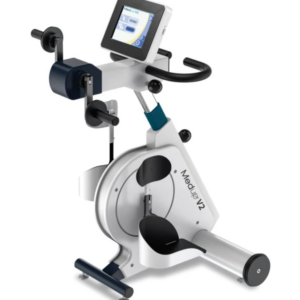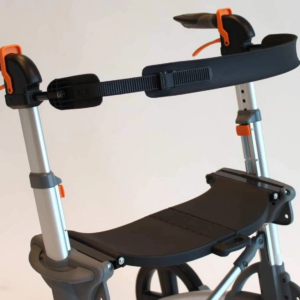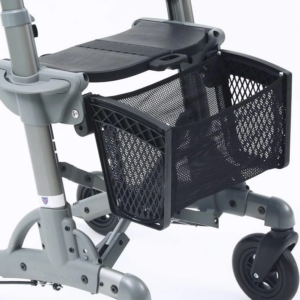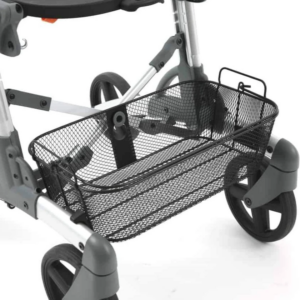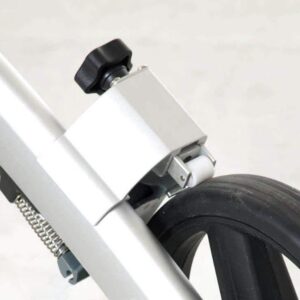As we age, maintaining our independence becomes increasingly challenging, especially when mobility begins to decline. For many older adults, the loss of mobility is not just a physical limitation—it is a life-altering event that can lead to feelings of helplessness, isolation, and depression. The connection between decreased mobility and mental health issues like depression in the elderly is well-documented. Here we will explore the profound impact of mobility loss on mental health and discuss how addressing these issues—particularly through the use of assistive devices like all-terrain rollators—can help restore not only mobility but also overall health, wellness, and a renewed sense of freedom.
Understanding the Link Between Mobility Loss and Depression
Mobility is closely tied to an individual’s sense of independence and self-worth. When an older adult begins to lose mobility, whether due to arthritis, injury, chronic illness, or other factors, it can lead to a significant decline in their quality of life. The inability to move freely and participate in activities they once enjoyed can result in:
- Social Isolation: Reduced mobility often means fewer opportunities to engage in social activities, leading to loneliness and social isolation. Without regular interaction with friends and family, older adults are at a higher risk of developing depression.
- Loss of Independence: Being unable to perform daily tasks without assistance can be devastating for someone who has spent their life being independent. This loss of autonomy can lead to feelings of frustration, inadequacy, and a diminished sense of purpose.
- Physical Health Decline: Lack of mobility can lead to a sedentary lifestyle, which can exacerbate existing health conditions, cause muscle atrophy, and contribute to obesity, all of which can negatively impact mental health.
- Chronic Pain: Many mobility issues are accompanied by chronic pain, which can further contribute to depression. The constant struggle with pain can be mentally exhausting and lead to feelings of hopelessness.
Addressing Mobility Issues to Improve Mental Health
Given the strong link between mobility and mental health, it is crucial to address mobility issues early and effectively. Here are several strategies that can help:
- Physical Therapy: Regular physical therapy can improve strength, balance, and flexibility, helping to maintain or even restore mobility. A tailored exercise program can also help manage pain and prevent further decline, contributing to better mental health.
- Home Modifications: Making the home more accessible can significantly reduce the risk of falls and make daily activities easier. Installing handrails, ramps, and stairlifts, as well as ensuring that all living spaces are on one level, can help an elderly person maintain their independence.
- Assistive Devices: Assistive devices, particularly mobility aids like walkers, can provide crucial support. They help older adults move around safely and confidently, reducing the risk of falls and enabling them to participate in social activities and exercise.
The Role of Assistive Walkers in Restoring Mobility and Wellness
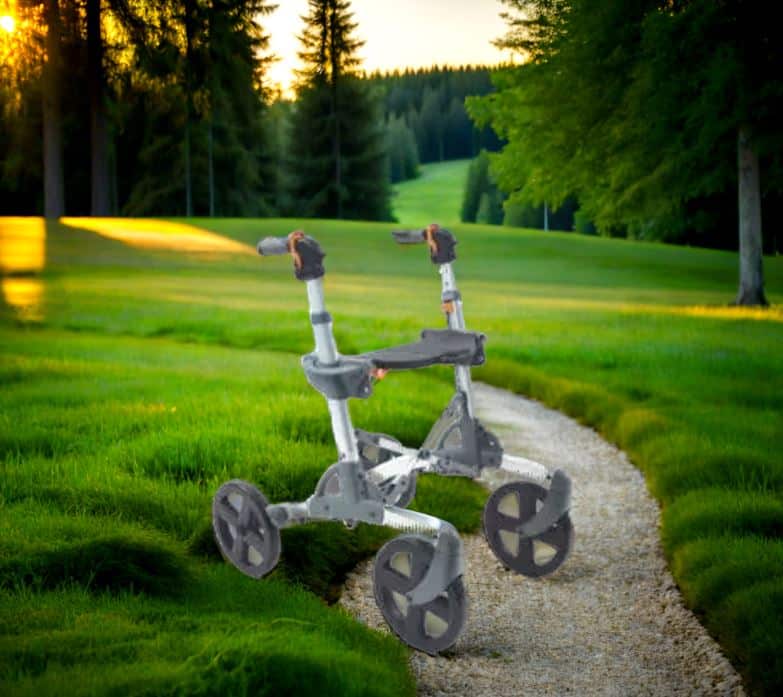
Among the various assistive devices available, walkers—specifically all-terrain rollators—offer a unique combination of mobility, stability, and freedom. These advanced walkers are designed to handle a variety of surfaces, from smooth indoor floors to uneven outdoor terrain, making them ideal for elderly individuals who wish to maintain an active lifestyle.
Benefits of All-Terrain Rollators:
- Enhanced Mobility: All-terrain rollators are designed with larger wheels and a sturdy frame, allowing users to navigate different types of terrain with ease. Whether it’s a walk in the park, a visit to the grocery store, or a stroll around the neighborhood, these rollators provide the support needed to move confidently and independently.
- Increased Stability: One of the biggest concerns for elderly individuals is the risk of falling. All-terrain rollators are equipped with features like ergonomic hand grips, easy-to-use brakes, and wide, stable bases, all of which enhance stability and reduce the likelihood of falls.
- Improved Physical Health: By encouraging regular movement, all-terrain rollators help prevent the physical decline associated with a sedentary lifestyle. Regular walking, even with the aid of a rollator, can improve cardiovascular health, strengthen muscles, and enhance overall fitness levels.
- Mental Health Boost: The freedom to move around more easily can have a significant positive impact on mental health. Being able to engage in social activities, spend time outdoors, and perform daily tasks independently can greatly reduce feelings of depression and anxiety. The confidence that comes with knowing they can safely navigate various environments can also lead to a better overall mood and outlook on life.
- Social Engagement: All-terrain rollators make it easier for elderly individuals to participate in social activities, whether it’s visiting friends, attending community events, or simply taking a walk with family members. This increased social engagement can combat loneliness and contribute to better mental health.
How All-Terrain Rollators Restore Freedom and Independence
For many elderly individuals, the thought of venturing outside the home can be daunting due to mobility challenges. However, all-terrain rollators can make these outings not only possible but enjoyable. By providing the necessary support and stability, these devices empower older adults to reclaim their independence and take control of their lives.
- Access to the Outdoors: The ability to enjoy nature and spend time outdoors is crucial for both physical and mental well-being. All-terrain rollators make it possible for elderly individuals to explore parks, trails, and gardens, enhancing their connection with the environment and promoting a sense of freedom.
- Travel and Leisure: Whether it’s a trip to the local market or a vacation with family, all-terrain rollators are designed to be portable and easy to use, making travel more accessible for older adults. This renewed ability to travel can significantly enhance their quality of life.
- Daily Activities: Simple tasks like shopping, visiting the doctor, or going to a café can be much more manageable with the help of an all-terrain rollator. These devices give elderly individuals the confidence to go about their daily lives without worrying about mobility limitations.
Embracing Mobility Aids for a Healthier, Happier Life
The loss of mobility does not have to mean the loss of independence, freedom, or quality of life. By addressing mobility issues with the right strategies and tools—especially with the use of assistive walkers like all-terrain rollators—elderly individuals can regain their sense of autonomy, improve their physical and mental health, and lead more fulfilling lives. If you or a loved one is struggling with mobility challenges, consider the many benefits that all-terrain rollators can offer. They are not just a tool for getting around—they are a key to unlocking a healthier, happier, and more independent life.


